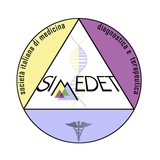Pharmacological treatments and risk of readmission to hospital for unipolar #depression in Finland: a nationwide cohort study
http://www.thelancet.com/journals/lanpsy/article/PIIS2215-0366(17)30134-7/fulltext
Little is known about the comparative effectiveness of long-term pharmacological treatments for severe unipolar depression. We aimed to study the effectiveness of pharmacological treatments in relapse prevention in a nationwide cohort of patients who had been admitted to hospital at least once as a result of unipolar depression.
Our results indicate that #lithium, especially without concomitant antidepressant use, is the pharmacological treatment associated with the lowest risk of hospital readmission for mental illness in patients with severe unipolar depression, and the outcomes for this measure related to antidepressants and antipsychotics are poorer than lithium. Lithium treatment should be considered for a wider population of severely depressed patients than those currently considered, taking into account its potential risks and side-effects.
http://www.thelancet.com/journals/lanpsy/article/PIIS2215-0366(17)30134-7/fulltext
Little is known about the comparative effectiveness of long-term pharmacological treatments for severe unipolar depression. We aimed to study the effectiveness of pharmacological treatments in relapse prevention in a nationwide cohort of patients who had been admitted to hospital at least once as a result of unipolar depression.
Our results indicate that #lithium, especially without concomitant antidepressant use, is the pharmacological treatment associated with the lowest risk of hospital readmission for mental illness in patients with severe unipolar depression, and the outcomes for this measure related to antidepressants and antipsychotics are poorer than lithium. Lithium treatment should be considered for a wider population of severely depressed patients than those currently considered, taking into account its potential risks and side-effects.
Association of #Lithium in Drinking Water With the Incidence of #Dementia
http://jamanetwork.com/journals/jamapsychiatry/fullarticle/2649277
Results from animal and human studies suggest that lithium in therapeutic doses may improve learning and memory and modify the risk of developing dementia.
Additional preliminary studies suggest that subtherapeutic levels, including microlevels of lithium, may influence human cognition A nonlinear association was observed. Compared with individuals exposed to 2.0 to 5.0 µg/L, the incidence rate ratio (IRR) of dementia was decreased in those exposed to more than 15.0 µg/L (IRR, 0.83; 95% CI, 0.81-0.85; P < .001) and 10.1 to 15.0 µg/L (IRR, 0.98; 95% CI, 0.96-1.01; P = .17) and increased with 5.1 to 10.0 µg/L (IRR, 1.22; 95% CI, 1.19-1.25; P < .001). Similar patterns were found with Alzheimer disease and vascular dementia as outcomes
Conclusions and Relevance Long-term increased lithium exposure in drinking water may be associated with a lower incidence of dementia in a nonlinear way; however, confounding from other factors associated with municipality of residence cannot be excluded
http://jamanetwork.com/journals/jamapsychiatry/fullarticle/2649277
Results from animal and human studies suggest that lithium in therapeutic doses may improve learning and memory and modify the risk of developing dementia.
Additional preliminary studies suggest that subtherapeutic levels, including microlevels of lithium, may influence human cognition A nonlinear association was observed. Compared with individuals exposed to 2.0 to 5.0 µg/L, the incidence rate ratio (IRR) of dementia was decreased in those exposed to more than 15.0 µg/L (IRR, 0.83; 95% CI, 0.81-0.85; P < .001) and 10.1 to 15.0 µg/L (IRR, 0.98; 95% CI, 0.96-1.01; P = .17) and increased with 5.1 to 10.0 µg/L (IRR, 1.22; 95% CI, 1.19-1.25; P < .001). Similar patterns were found with Alzheimer disease and vascular dementia as outcomes
Conclusions and Relevance Long-term increased lithium exposure in drinking water may be associated with a lower incidence of dementia in a nonlinear way; however, confounding from other factors associated with municipality of residence cannot be excluded
NP03, a Microdose #Lithium Formulation, Blunts Early #Amyloid Post-Plaque Neuropathology in McGill-R-Thy1-APP Alzheimer-Like Transgenic Rats
Epidemiological, preclinical, and clinical studies have suggested a role for microdose lithium in reducing Alzheimer’s disease (AD) risk by modulating key mechanisms associated with AD pathology. The novel microdose lithium formulation, NP03, has disease-modifying effects in the McGill-R-Thy1-APP transgenic rat model of AD-like amyloidosis at pre-plaque stages, before frank amyloid-β (Aβ) plaque deposition, during which Aβ is primarily intraneuronal..
During the early Aβ post-plaque stage, we find that NP03 rescues functional deficits in object recognition, reduces loss of cholinergic boutons in the hippocampus, reduces levels of soluble and insoluble cortical Aβ42 and reduces hippocampal Aβ plaque number. In addition, NP03 reduces markers of neuroinflammation and cellular oxidative stress. Together these results indicate that microdose lithium NP03 is effective at later stages of amyloid pathology, after appearance of Aβ plaques.
https://bit.ly/38D9icR
Epidemiological, preclinical, and clinical studies have suggested a role for microdose lithium in reducing Alzheimer’s disease (AD) risk by modulating key mechanisms associated with AD pathology. The novel microdose lithium formulation, NP03, has disease-modifying effects in the McGill-R-Thy1-APP transgenic rat model of AD-like amyloidosis at pre-plaque stages, before frank amyloid-β (Aβ) plaque deposition, during which Aβ is primarily intraneuronal..
During the early Aβ post-plaque stage, we find that NP03 rescues functional deficits in object recognition, reduces loss of cholinergic boutons in the hippocampus, reduces levels of soluble and insoluble cortical Aβ42 and reduces hippocampal Aβ plaque number. In addition, NP03 reduces markers of neuroinflammation and cellular oxidative stress. Together these results indicate that microdose lithium NP03 is effective at later stages of amyloid pathology, after appearance of Aβ plaques.
https://bit.ly/38D9icR
Iospress
NP03, a Microdose Lithium Formulation, Blunts Early Amyloid Post-Plaque Neuropathology in McGill-R-Thy1-APP Alzheimer-Like Transgenic…
Epidemiological, preclinical, and clinical studies have suggested a role for microdose lithium in reducing Alzheimer’s disease (AD) risk by modulating key mechanisms associated with AD pathology. The novel microdose lithium formulation, NP03, has dis
